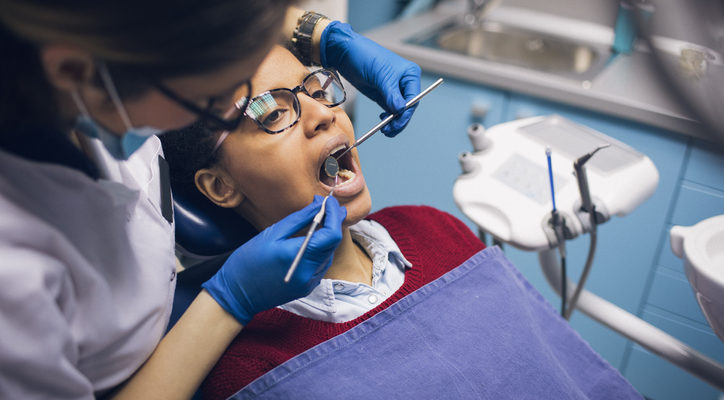Most people have heard of the word “cavity,” however they do not know what exactly a dental cavity is, or how it can affect your entire overall health. That’s even more shocking considering how dental health can affect the rest of your overall health.
According to the American Dental Association, cavities form when the outer layer of your teeth (called the enamel) begins to decay. A cavity is essentially a small hole in your tooth; they can be an issue for all ages and as teeth age, the teeth are more likely to weaken and develop more holes.
The 5 Symptoms of Cavities and Tooth Decay
Here are the five symptoms to look out for if you think you may have a cavity or tooth decay.
- Experience Pain While Chewing – The first sign of tooth decay or a cavity is usually a pain. You may feel a sharp pain in and around the tooth when chewing or drinking. Contact your dentist immediately if you experience pain, because the pain may become more severe if left untreated.
- See A Hole in Tooth or Damaged Teeth – If you can visibly see a hole or pit in your tooth, it could be a cavity. If you have recently broken a tooth or experienced any type of damage to your teeth, a cavity could soon follow.
- Sensitivity to Various Temperatures – While some individuals just have sensitive teeth, a sudden change in teeth sensitivity could be a red flag for a cavity or tooth decay. If you experience sensitivity to cold foods or hot beverages, contact your doctor to rule out cavities.
- Discoloration of the Tooth/Teeth – When a tooth becomes discolored (yellow, brown, or black), several factors should be considered in the health of the tooth. One of those symptoms of discoloration can be tooth decay.
- No Symptoms – You may not have any symptoms at all, but still have damage to the teeth or even cavities. For this reason, it is crucial to maintain proper dental hygiene and visit the dentist every six months for routine cleanings.
Learn How to Prevent Cavities
The leading cause of tooth decay is plaque and bacteria build up on the teeth. Without proper dental hygiene, a plaque film can form on the teeth causing bacteria to “stick” to the teeth. (You often know it when you feel it!) Sticky teeth mean your pearly whites have not been correctly brushed and cleaned. By brushing teeth with fluoride at least twice daily, you can greatly reduce your risk of plaque build-up and tooth decay. In addition to brushing, flossing in between teeth where plaque can accumulate is also essential.
Contact the dentist at Family Dentistry of Columbus today to schedule your next dental cleaning.

